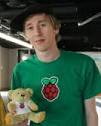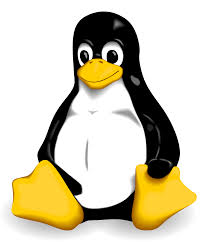Ubuntu
See the following -
'Virtual Doctors' Helping Patients in Zambia
The idea of a "virtual doctor" project might sound rather futuristic. But the inspiration for this scheme to improve health services in Zambia began in very low-tech and unhappy circumstances. Huw Jones, working in Zambia as a safari guide, was driving a Land Rover along a road in a remote part of the country. He saw a trail of blood in the road, and his first reaction was that it might have come from an animal killed by a lion. But he came across a couple on a bike - the man riding and the woman carried on the handlebars. She was pregnant and bleeding heavily and they had been cycling for hours with the aim of reaching the nearest hospital, almost 60 miles away...
- Login to post comments
10 Disappointments For Open Source In 2013
[...] Here are 10 of the most disappointing developments for this past year. Some of them were game changers, others were simply thorns in the side of the open source community, and a few may even have spurned a change for the positive within the community. Let's take a look at the cruft that dared to mar the sheen of an otherwise outstanding year. Read More »
- Login to post comments
10 Predictions For Open Source In 2014
The year 2013 was a solid year for open source. There were plenty of highs and certainly a few lows. However, I believe that Linux -- continuing to build on its solid groundwork -- will have the best year yet in 2014. Read More »
- Login to post comments
10 Steps To Overcome Your Fear Of Using Open Source Software
The entire Internet runs on open source software (OSS) and, if we used it more in medical devices, it would lead to reduced costs and increase the quality of devices. If you ask some regulatory affairs folks in medical device companies, they think OSS is too “dangerous” for use in safety critical systems...
- Login to post comments
10 Steps To Overcome Your Fear Of Using Open Source Software
The entire Internet runs on open source software (OSS) and, if we used it more in medical devices, it would lead to reduced costs and increase the quality of devices. If you ask some regulatory affairs folks in medical device companies, they think OSS is too “dangerous” for use in safety critical systems...
- Login to post comments
10 Things The Open Source Community Got Right In 2013
The year 2013 was one of the best years for open source in recent memory. It seemed like every month of the year brought yet another announcement either by or for the community that celebrates all things Linux and open source. [...] Does this mean Linux has finally made its way to mass acceptance? The answer is that it's very, very close. Let's take a look at the 2013 successes before we draw our final conclusion. Read More »
- Login to post comments
7 Notable Legal Developments in Open Source in 2016
 In 2012 the jury in the first Oracle v. Google trial found that Google's inclusion of Java core library APIs in Android infringed Oracle's copyright. The district court overturned the verdict, holding that the APIs as such were not copyrightable (either as individual method declarations or their "structure, sequence and organization" [SSO]). The Court of Appeals for the Federal Circuit, applying 9th Circuit law, reversed, holding that the "declaring code and the [SSO] of the 37 Java API packages are entitled to copyright protection." The U.S. Supreme Court declined to review the case, and in 2016 a closely watched second trial was held on Google's defense of fair use. In May 2016 the jury returned a unanimous verdict in favor of Google...
In 2012 the jury in the first Oracle v. Google trial found that Google's inclusion of Java core library APIs in Android infringed Oracle's copyright. The district court overturned the verdict, holding that the APIs as such were not copyrightable (either as individual method declarations or their "structure, sequence and organization" [SSO]). The Court of Appeals for the Federal Circuit, applying 9th Circuit law, reversed, holding that the "declaring code and the [SSO] of the 37 Java API packages are entitled to copyright protection." The U.S. Supreme Court declined to review the case, and in 2016 a closely watched second trial was held on Google's defense of fair use. In May 2016 the jury returned a unanimous verdict in favor of Google...
- Login to post comments
A Guide to Bootstrapping Your Open Source Project with GitHub
 There's much more to managing a project with git beyond just committing code and working with branches. GitHub-Driven Development is a process that will help you organize and manage the progression of a project on GitHub, although much of this could be applied to other systems, such as GitLab, as well. This concept isn't only for developers; it can be used for project managers or anyone involved in the development of a project—it could even be applied to non-code projects...
There's much more to managing a project with git beyond just committing code and working with branches. GitHub-Driven Development is a process that will help you organize and manage the progression of a project on GitHub, although much of this could be applied to other systems, such as GitLab, as well. This concept isn't only for developers; it can be used for project managers or anyone involved in the development of a project—it could even be applied to non-code projects...
- Login to post comments
A New Android App for Teaching Kids How to Read
 Have you been looking for software to help your child to read? Well, your quest may be over. Phoenicia is a new literacy application for Android developed by Michael Hall, an open source software developer, community manager, and technology evangelist currently working at Canonical, maker of Ubuntu. In this interview, he talks about the diagnosis of his oldest child with an Autism Spectrum Disorder, his learning curve of Android development, and why user testing matters more than you think...
Have you been looking for software to help your child to read? Well, your quest may be over. Phoenicia is a new literacy application for Android developed by Michael Hall, an open source software developer, community manager, and technology evangelist currently working at Canonical, maker of Ubuntu. In this interview, he talks about the diagnosis of his oldest child with an Autism Spectrum Disorder, his learning curve of Android development, and why user testing matters more than you think...
- Login to post comments
A Primer on the Open Source Movement from a Health Care Perspective
 Open source, in myriad forms, has emerged as a significant development model that drives both innovation and technological dispersion. Ignore it at your peril, as did the major computer companies destroyed or totally remade by Linux and free software, or encyclopedia publishers by Wikipedia, or journalists and marketers by social media. The term "open source" was associated first with free software, but it goes far beyond software now. People around the world use open hardware, demand open government, share open data, and--yes--pursue open health. The field of health, in particular, will be transformed by open source principles in software, in research, in consultations and telemedicine, and in the various forms of data sharing all these processes call for.
Open source, in myriad forms, has emerged as a significant development model that drives both innovation and technological dispersion. Ignore it at your peril, as did the major computer companies destroyed or totally remade by Linux and free software, or encyclopedia publishers by Wikipedia, or journalists and marketers by social media. The term "open source" was associated first with free software, but it goes far beyond software now. People around the world use open hardware, demand open government, share open data, and--yes--pursue open health. The field of health, in particular, will be transformed by open source principles in software, in research, in consultations and telemedicine, and in the various forms of data sharing all these processes call for.
- Login to post comments
A Quick Look Back on Linux and Open Source 2015
 The year is almost over and what a year it has been. Once again I must bemoan the fact that the year of the Linux desktop has still eluded us. That's okay...for now. Why? Because Linux managed to dominate in a world that is far more important than the desktop. Oh, and there's the fact that the desktop is slowly becoming irrelevant to a large portion of the world. More on that later. If I were to consider the most important piece of the Linux and open source 2015 puzzle, I'd have to say it would be its continued dominance in the Enterprise. This is something no one would have predicted ten years ago. But lo and behold, 2015 saw the continued dominance of Linux in the space of space...big business...
The year is almost over and what a year it has been. Once again I must bemoan the fact that the year of the Linux desktop has still eluded us. That's okay...for now. Why? Because Linux managed to dominate in a world that is far more important than the desktop. Oh, and there's the fact that the desktop is slowly becoming irrelevant to a large portion of the world. More on that later. If I were to consider the most important piece of the Linux and open source 2015 puzzle, I'd have to say it would be its continued dominance in the Enterprise. This is something no one would have predicted ten years ago. But lo and behold, 2015 saw the continued dominance of Linux in the space of space...big business...
- Login to post comments
After switching 37,000 PCs to Ubuntu, French Armed Forces says open source cuts costs 40 percent
The French Gendarmerie, a branch of the French Armed Forces in charge of public safety, has been a leader in moving away from proprietary software in recent years.
- Login to post comments
Automating Cloud Services with Open Source Tools
Depending on who you ask, DevOps is either the best thing to come along since sliced bread or the biggest load of hooey ever foisted on the IT sector. But while it’s understandable to have an allergic reaction to yet another cool technology that will Save Us All and still have time to bake cookies (with sprinkles), there is some real substance within the notion of DevOps … provided you can Read More »
- Login to post comments
Benjamin Kerensa On Firefox OS & Internet Freedom
According to the Mozilla Developer Network, Firefox OS is an open source mobile operating system based on Linux, open web standards and Mozilla’s Gecko technology. But there’s more to it that that: Firefox OS is about reinventing what mobile platforms can be, about pushing the boundaries of what is possible with the Web on mobile and about enabling entirely new segments of users to come online with their smartphone at various levels of participation, from users to developers...
- Login to post comments
Bio-Linux: A Stable, Portable Scientific Research Linux Distribution
 Bio-Linux was introduced and detailed in a Nature Biotechnology paper in July 2006. The distribution was a group effort by the Natural Environment Research Council in the UK. As the creators and authors point out, the analysis demands of high-throughput "-omic" (genomic, proteomic, metabolomic) science has necessitated the development of integrated computing solutions to analyze the resultant mountains of experimental data. From this need, Bio-Linux was born. The distribution, according to its creators, serves as a "free bioinformatics workstation platform that can be installed on anything from a laptop to a large server." The current distro version, Bio-Linux 8, is built on an Ubuntu 14.04 LTS base. Thus, the general look and feel of Bio-Linux is similar to that of Ubuntu.
Bio-Linux was introduced and detailed in a Nature Biotechnology paper in July 2006. The distribution was a group effort by the Natural Environment Research Council in the UK. As the creators and authors point out, the analysis demands of high-throughput "-omic" (genomic, proteomic, metabolomic) science has necessitated the development of integrated computing solutions to analyze the resultant mountains of experimental data. From this need, Bio-Linux was born. The distribution, according to its creators, serves as a "free bioinformatics workstation platform that can be installed on anything from a laptop to a large server." The current distro version, Bio-Linux 8, is built on an Ubuntu 14.04 LTS base. Thus, the general look and feel of Bio-Linux is similar to that of Ubuntu.
- Login to post comments